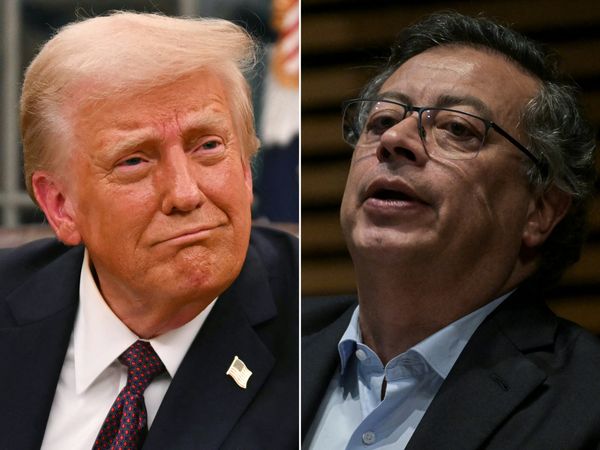
What is the core of MAGA Republicanism, which must now be rated one of the most successful political movements in recent US political history? From a clutch of racist, isolationist and small-government fringe groups in the late-Bush/early-Obama years, it has taken over the Republican Party and purged it of non-believers, won two of the last three presidential elections, and now holds both houses of Congress after Joe Biden’s poor electoral performance.
One part of the core is undoubtedly white, especially white male, resentment at the perceived undermining of traditional white privilege — even if that “undermining” is no more than the extension of basic rights, opportunities and even courtesies to non-white males, and the heightened visibility of minorities.
This has been driven both by neoliberalism — under which your only value is economic, regardless of your skin colour, gender, sexuality, or religion — and identity politics, in which one’s identity, even one selected rather than socially or biologically constructed, and one’s performance of that identity, are deemed paramount in all forms of interaction and engagement. Identity politics began on the left but has since been adopted by the right, making MAGA Republicanism the most successful form of identity politics of all.
But white resentment isn’t enough of an explainer, given the stronger support for Trump among minority groups last November. There’s a wider resentment at work towards an economic system that has failed Americans, most pointedly in the form of high inflation that the Biden administration oversaw a substantial reduction in — sufficient for the Federal Reserve to begin cutting interest rates before the election — but not the reversal of. That administration tested a hypothesis: that if governments seek to reverse the economic changes wrought by neoliberalism via a more active, interventionist industry and infrastructure policy aimed at rebuilding manufacturing, voters will see a system being reset in their interests. They didn’t, or didn’t nearly enough.
Instead, by a relatively narrow preponderance — Trump won 77.3 million votes to Harris’ 75 million (more than Trump in 2020) — the US electorate backed a man whose track record in his first term was feeble in most regards and catastrophic in relation to the pandemic, who makes a virtue of wrecking US institutions, and who is surrounded by billionaires pandering to him for regulatory favours. That Trump is a crony capitalist interested in personal enrichment, rather than delivering for Americans, has never been hidden from the US electorate. Indeed, the slew of criminal activities Trump has engaged in, from fomenting insurrection, to sexual assault, to fraud, to common-or-garden corruption, don’t seem to be a problem for a large segment of the US populace.
What’s happening here? The Trump cryptocurrencies shine a helpful light on the mindset of MAGA Republicanism. $TRUMP and $MELANIA, as explained so well by my colleague Cam Wilson, aren’t so much memecoins as griftcoins. Their very existence is a scam, intended to enrich Trump and his family and cronies. Some ordinary buyers who got in early enough may also make some money, but that opportunity now seems to have closed off, with the $TRUMP price stabilising at around half its early peak.
This isn’t a kind of amusing fringe financial ploy by Trump and co. — it’s the very heart of MAGA Republicanism. It’s all about how you can rip someone else off, about how you can get ahead at someone else’s expense.
If one could sketch out a crude economic-political history of the United States over the past century, it has gone from laissez-faire Republicanism in the 1920s, to FDR’s New Deal, which saved capitalism by imposing constraints on it (most notably heavy taxation of the rich) and dramatically expanding the role of government, to a bipartisan consensus on the role of government from Eisenhower to Nixon (to this day the most progressive president after FDR and LBJ).
Reagan — despite his predilection for government spending — ended this consensus and helped establish a new one of privatisation, smashing unions, deregulation, free trade and obeisance to corporations, which lasted until the Obama years. It initially delivered rises in standards of living but dramatically worsened inequality, increased the political dominance of corporate interests, eventually gutted the American middle class, deindustrialised much of the economy, and imposed precarity as a fundamental aspect of economic life on all but the richest Americans.
Trump’s promise to fix that proved hollow — inevitably, given the corporate interests that backed him — but many American voters evidently think Biden’s promise to do likewise was also breached. There clearly remains, as the reaction to the murder of UnitedHealthcare CEO Brian Thompson shows, a profound resentment of an economic system dominated by corporate interests — and the perceived refusal of the political class to fix it
So why did voters return to the White House a man they know is the most overt example of crony capitalism ever seen in the US?
Possibly because Trump resolves the persistent tension between the pretence of democracy as a vehicle for the public interest and the praxis of US democracy as a vehicle for capitalist interests. There is no more pretence with Trump: he has proudly ushered in an era of endless grift. The business of America is no longer a business — in the traditional sense of commercial activities performed against an agreed set of rules and social structures — but ripping off anyone you can.
It’s a free-for-all, in which you can trust no-one from the president down, and no institution. Not merely has any community building and support — fundamental to the US political economy from the New Deal to Nixon — been abandoned, but even the rules-based competition of neoliberalism now seems a quaint Utopian fantasy.
The success of MAGA Republicanism is a good reason to abandon referring to “late-stage capitalism”. Capitalism’s ability to endlessly absorb threats to its existence and transform them into structures that reinforce it is truly marvellous. Far from wanting to overthrow their economic system, Americans have voted to embrace an anarchic economic free-for-all in which the strong, and most particularly the rich, enjoy the spoils, and your only choice is to work out how best to rip off the next guy.
Why not buy a griftcoin if it gives you the chance to do over someone else? The grift is the thing. It’s the only thing.
Have something to say about this article? Write to us at letters@crikey.com.au. Please include your full name to be considered for publication in Crikey’s Your Say. We reserve the right to edit for length and clarity.







